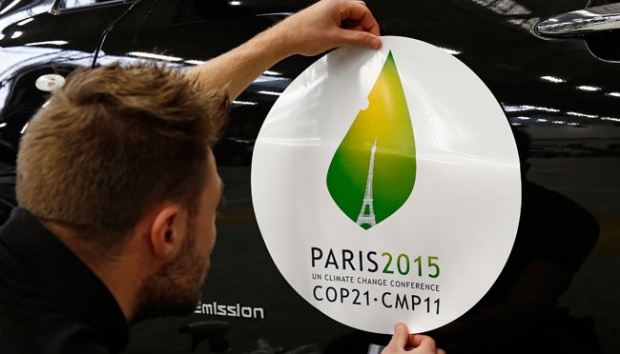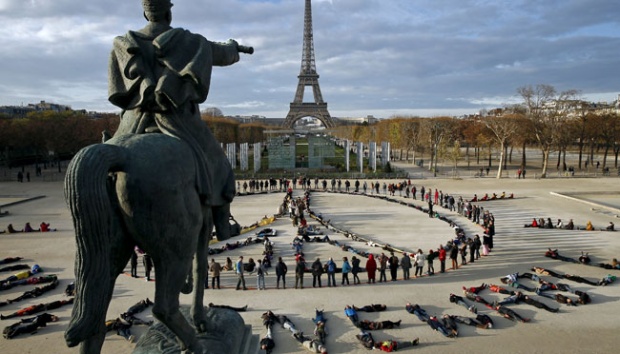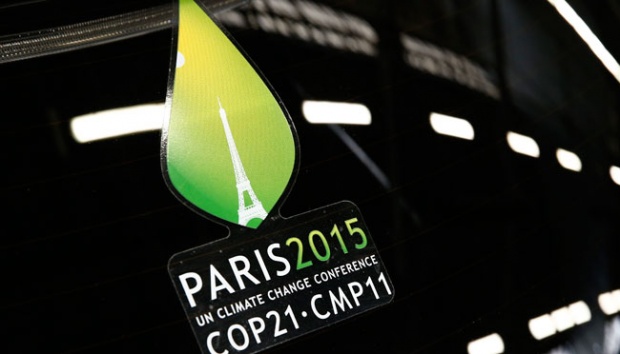At Climate Talks, African Nations Pledge to Restore Forests
6 December 2015 22:12 WIB

TEMPO.CO, Johannesburg - Tree by tree, more than a dozen African governments pledged to restore the continent's natural forests at the United Nations climate talks on Sunday.
The earth has lost more than half its forests over the course of human history, according to the World Resources Institute. The deforestation of the world's tropical forests has contributed to climate change by producing up to 15 percent of global carbon emissions, the organization said.
The AFR100 initiative is a pledge by African nations to restore 100 million hectares (about 386,000 square miles) of forest by 2030, according to the organization.
"As the world forges a climate agreement in Paris, African countries — which bear the least historic responsibility for climate change — are showing leadership with ambitious pledges to restore land," said Andrew Steer, president and CEO of the World Resources Institute.
Wanjira Mathai, daughter of the late Kenyan Nobel Peace Prize Laureate Wangari Maathai, described the AFR100 forest restoration project as unprecedented.
"I have seen restoration in communities both large and small across Africa, but the promise of a continent-wide movement is truly inspiring," said Mathai, chairwoman of the Green Belt Movement founded by her mother. "Restoring landscapes will empower and enrich rural communities while providing downstream benefits to those in cities. Everybody wins. "
During the Global Landscapes Forum at the U.N. climate talks, the World Bank and the German government and other partners, set aside more than $1 billion in development funding and $540 million in private funding for the African reforestation.
More than a dozen African countries, including Ethiopia, Kenya, Uganda, Burundi and Rwanda, have pledged millions of acres to the project. West African nations along the Sahara desert have also pledged to plant more trees to stop the ever encroaching desert from destroying more arable land.
"Restoring our landscapes brings prosperity, security and opportunity," said Vincent Biruta, Rwanda's Minister of Natural Resources. "With forest landscape restoration we've seen agricultural yields rise and farmers in our rural communities diversify their livelihoods and improve their well-being. Forest landscape restoration is not just an environmental strategy, it is an economic and social development strategy as well."
Among the pledging countries is Madagascar, where the island forests are home to some of the world's most unique plants and animals, all under threat from deforestation. Satellite images of the island show forests that have been slashed and burned, according to the World Wildlife Foundation.
To astronauts observing from space, Madagascar seems like an island bleeding into the ocean as its rich red soil, eroded by decades of unregulated logging, runs into the ocean, leaving behind cratered land unfit for farming, according to the foundation.
Some of the countries that are home to the Congo Basin, which conservationists call the earth's second set of lungs, after the Amazon Basin, have also signed up to the project. The Democratic Republic of Congo has pledged 8 million hectares (20 million acres) to the restoration project.
But these pledges may face challenges from the global timber industry, exacerbated by illegal logging, which is the biggest cause of deforestation, according to environmental protection group Greenpeace. Despite laws to prevent this, it is has never been easier to illegally chop down trees in the Congo Basin, the group said.
Corruption in the Congo Basin region has undermined reforms to the timber industry, especially in the Democratic Republic of Congo, where protected wildlife areas are increasingly disturbed, according to a Greenpeace report published earlier this year.
If this initiative succeeds, it would improve the lives of people living around forests and to the ecosystem as a whole, said Victorine Che Thoener, leader of Greenpeace's Congo Basin project.
"But many of these African countries make these pledges in the hope that they will receive funding," said Che Thoener, who is based in Cameroon, one of the Congo Basin countries that have signed the pledge. "There's a lot of talk, but not a lot of action on the ground."
Similar conservation efforts have failed because they do not include the right training and tools to monitor the progress, said Che Thoener.
Acknowledging these challenges, the World Research Institute is working on a monitoring project that includes satellite and ground-level observation, said Sean De Witt, director of the organizations global restoration initiative.
AP





















